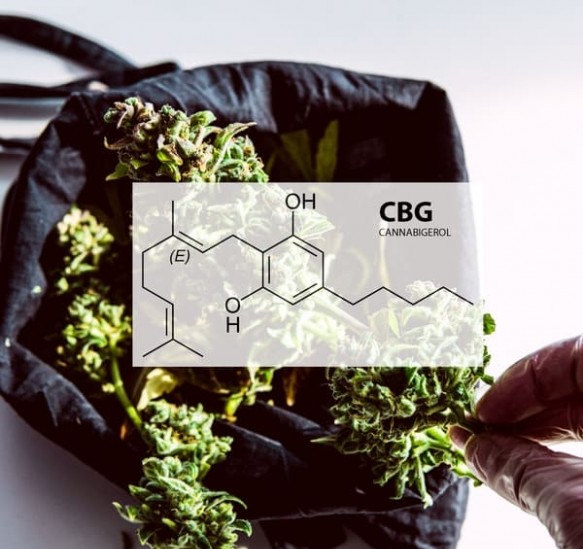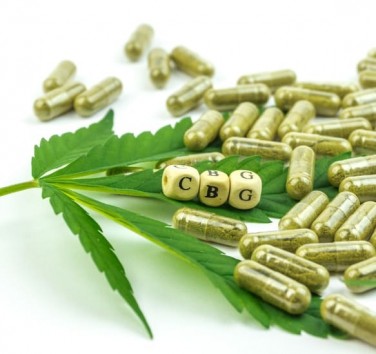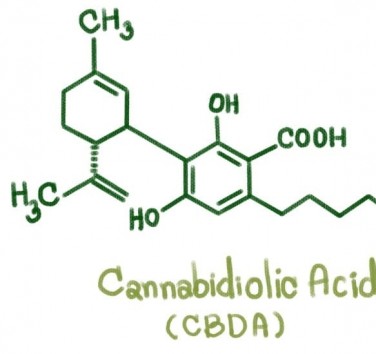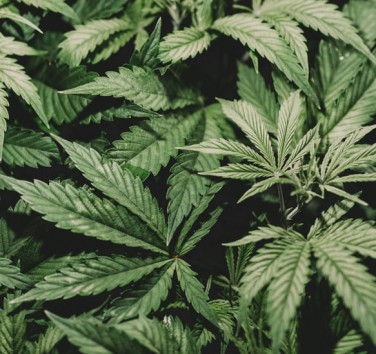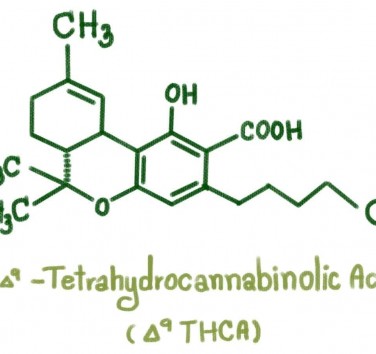What is the CBG?
CBG, otherwise known as "cannabigerol", is one of the many cannabinoid compounds in the cannabis plant. It is even considered the mother of all cannibinoids since without it, neither THC nor CBD would exist. Indeed, cannabigerol is the very first cannabinoid produced by the hemp plant during its seedling phase where the enzymes and plant acids it contains, react together to create CBGa. It is only later that CBGa becomes CBG via a chemical process of decarboxylation. In this way, almost all of the CBGa in a hemp plant is converted into THC and cannabidiol.
This naturally occurring molecule in hemp is not psychoactive. Isolated for the first time in 1964, it has allowed the understanding of how cannabis works through studies on its applications and effects, conducted for several years. If CBG is seen as the premise of everything it is because as its acidic form, CBGa, grows and matures, it then separates into three other primary cannabinoid acids: CBDa (cannabidiolic acid), CBCa (cannabochromene acid) and THCa (tetrahydrocannabinol).
The effects and benefits of CBG
Once consumed, CBG interacts with our endocannabinoid system (ECS) by partially activating CB1 and CB2 receptors, which are distributed throughout the human body. According to a study from the University of Reading in the UK, it would therefore, like CBD, affect mood, sleep as well as appetite and could also stimulate the receptors responsible for pain and heat sensitivity.
Another study conducted in Italy in 2013, at the Faculty of Pharmacy of the University of Naples Federico II, highlighted the ability of the molecule to fight against inflammations of the digestive tract.The experiments carried out in this particular case, showed that intestinal inflammations in rodents with murine colitis could be drastically reduced and without side effects, thanks to CBG.
Also, scientific experts admit the beneficial action of CBG on various serious forms of cancer, due to the apoptosis phenomenon it promotes, while reducing the proliferation of cancer cells, according to preclinical studies. In addition, anti-tumour properties have been attributed to CBG since 1996, following the conclusive results of in vitro tests on a mouse melanoma. In the meantime, other in vitro studies have demonstrated its anti-tumour action in colon and breast cancer, for example.
CBG is also said to act against stress, depression and fungal infections, as highlighted by research conducted by Dr Bonni Goldstein, a specialist in therapeutic cannabis. Cannabigerol is therefore an effective antibacterial substance in the treatment of skin diseases. Finally, by reducing intraocular pressure it could also help in the healing of glaucoma.
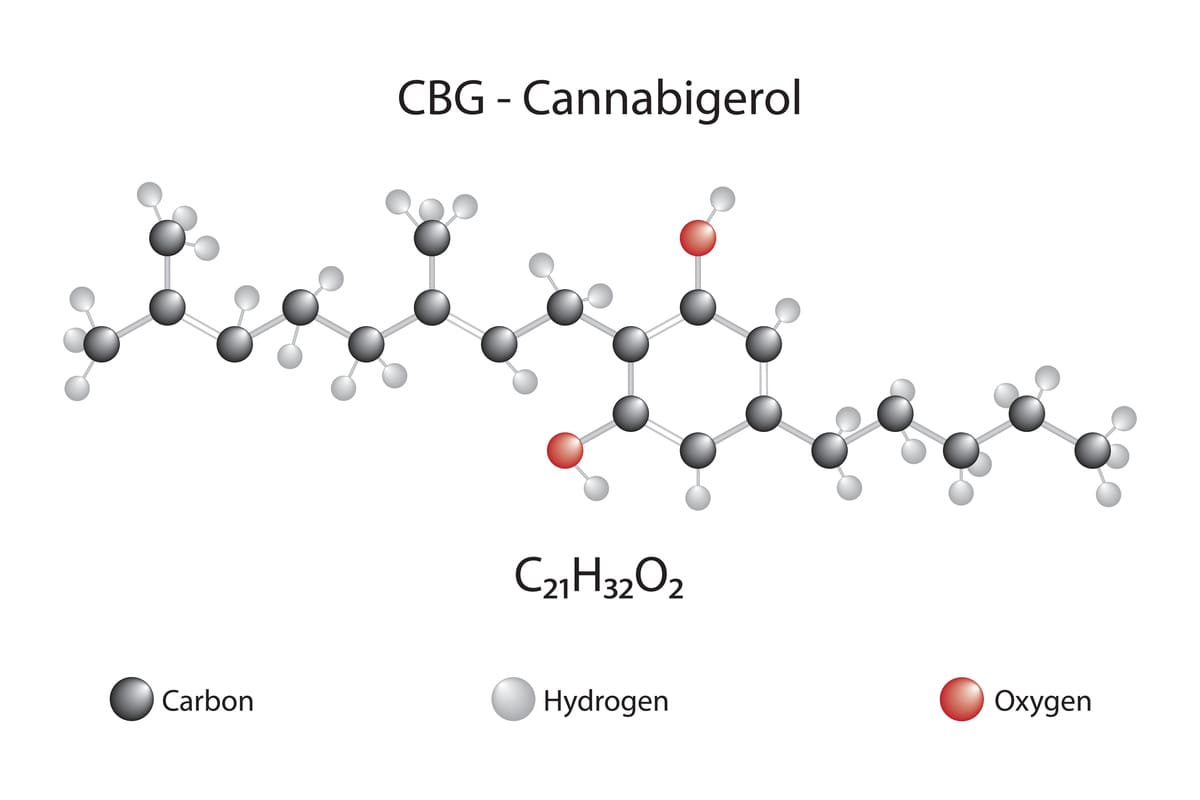
Main differences between CBG and CBD
- In terms of their molecular structure
CBGa is the precursor compound to the 100 or so cannabinoids found in the plant. Although CBG and CBD come from similar chemical pathways, they differ in their molecular structure which binds to receptors in a different way for each and then affects the human body in their own way. It is their chemical structure that determines the bioavailability of a cannabinoid as well as its solubility in water.
- At the level of pharmacology and their interactions with SEC
Compared the effects of CBG and CBD on the serotonin 5-HT1A receptor, in a 2011 study published in the journal Psychopharmacology, it was observed that CBG's affinity for the receptor allowed it to exert its anti-nausea properties to act as an activator, whereas CBD behaved more as a blocker or antagonist.
Where CBG interacts with CB1 and CB2 receptors, CBD, acts by influencing the endocannabinoid system as a whole.In contrast to CBD, which only has an affinity for CB2, CBG has a greater degree of affinity for both CB1 (contained in abundance in the brain) as well as CB2 (mostly located in the immune system) and binds to specific receptors.
Thus, the two compounds bind to the same site but their interactions with the 5-HT1A receptor are opposite. Moreover, the results of the same study reveal that cannabigerol blocks the antiemetic effects of cannabidiol.
- In terms of their concentration in hemp plants
.
CBG is much more difficult to isolate than CBD since it represents only a tiny fraction of the dry weight of the hemp. We will be able to find about 1% CBG in the final hemp plant whereas it is estimated that a mature hemp plant contains approximately 10% CBD.
On the other hand, isolating hemp is not only complex but also expensive as it requires state-of-the-art equipment to be extracted properly, in addition to specialist knowledge in the field.
- In terms of appetite stimulation
Studies on rodents found that CBG whetted the appetite of some subjects, encouraging them to eat double their usual intake when it caused no change in others. Conversely, CBD tended to significantly reduce total food intake.
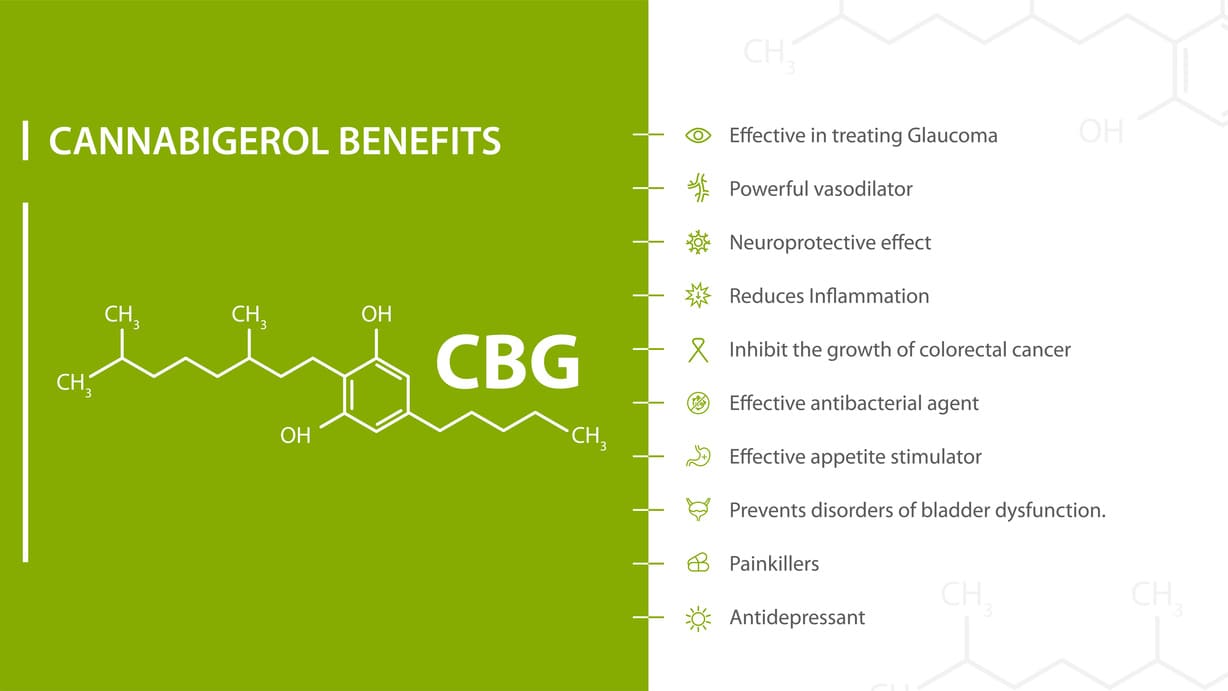
What about the combination of CBG and CBD?
If you're wondering if combining CBG and CBD is a good idea, the answer is yes! By using them together, you'll benefit from what is known as the "entourage effect". This is an incredible synergy of all the compounds in cannabis that, each playing their part, will maximise the benefits. Using one cannabinoid at a time will interact positively with the body, but with more than one, the benefits will multiply. Together they are stronger and work even better than when taken in isolation.
CBG and CBD taken together balance each other out. While cannabigerol acts directly on the receptors, cannabidiol stimulates the enzyme responsible for producing endocannabinoids. The relaxing and calming effect of CBG is perfectly balanced by the energizing effect of CBD and vice versa. Most of the time, it is recognized that CBG is more effective for anything related to neurological and mental distress, such as depression, while CBD is more indicated for signs of bodily distress.
However, it should be kept in mind that we are all different, which is why some people respond better to CBG while others have better results with CBD. Therefore, taking them synergistically is one of the best ways to make sure you get the most out of both and know which is best for you.

